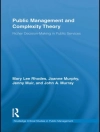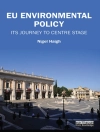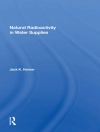Campaigns on the Cutting Edge evaluates the current trends of today’s campaigns and assesses the innovative changes these well-tuned organizations are making on the presidential, congressional, and gubernatorial levels. As technology now allows candidates to announce their candidacies online, raise money through web fundraising, and mobilize supporters via smartphones, these increasingly mobile and integrated campaigns face the growing influence of outside interests.
The thoroughly updated
Fourth Edition looks at the 2018 midterm election and focuses on the rise of fake news, women′s activism in the #Me Too movement, voter ballot access measures, and the ways in which technology increases the volume of information that campaigns use.
Daftar Isi
PREFACE
ABOUT THE EDITOR
ABOUT THE CONTRIBUTORS
PART I – The New Political Campaign
1. Introduction – Campaigns on the Cutting Edge – Richard J. Semiatin
The New Political Campaign
The Evolving Campaign: Adaptation by Political Institutions and Groups
2. Fundraising: Toward Donor-Centered Politics? – Robert G. Boatright
The Old Model of Campaign Fundraising
Mixing Old and New Models of Fundraising
Large Unregulated Contributions and the Rise of Candidate Super PACs
Super PAC Surrogate Fundraising Committees for Presidential Candidates in 2016 and 2020
Does Candidate Fundraising Still Matter?
From Candidate-Centered to Donor-Centered Politics?
3. Paid Media in Campaigns: Now and in the Future – Thomas A. (Tad) Devine
The Importance of Audio and Video
Research-Based Message Development
Case Study: Bernie Sanders′s 2016 Campaign for President
Cutting-Edge Changes in Advertising
Independent Expenditures
Conclusion
4. Social and New Media Campaigns: Advantage or Source of Disinformation? – Michael Turk
“Traditional” Online Media in Campaigns
Disinformation as a New Confounding Variable
Social Media Influencers
Reddit, Instagram, 9GAG, and More
The Mobile Voter
Conclusion: The Future of Online Media
5. Survey Research and Campaigns: Challenges and Opportunities – Candice J. Nelson
The 2016 Presidential Election
Challenges Facing Survey Research in Campaigns
Opportunities for Survey Research in Campaigns
Conclusion: The Future of Survey Research in Campaigns
6. Voter Mobilization: An Unexpected Future – Richard J. Semiatin
The Tradition of Parties Delivering Votes
Traditional Model of Targeting Voters
Voter Mobilization in the Twenty-First Century: Customer-Driven Campaigns
The Cutting Edge of Change: Into the Future With Voter Mobilization
PART II – The Evolving Campaign: Adaptation by Political Institutions and Groups
7. Political Parties: In the Age of Populism and Reform – Tari Renner
National Party Organizations: Structure and Reform
The Emergence and Institutionalization of the Service Party Model
Party Leadership and Strategies
The World Today: Parties Compete With Outside Groups for Resources
National Party Organizations: Traditional and New Technologies
GOTV: The Latest Voter Mobilization
New Media, Partnerships, and Populism
Future Challenges: Demographic Change and Realignment?
8. Interest Groups, Super PACs and Independent Expenditures: Driven by Ideology – Nina Therese Kasniunas, Mark J. Rozell, and Charles N. W. Keckler
Traditional Approaches by Interest Groups in Campaigns
Modern Techniques Employed by Traditional Interest Groups in Campaigns
The Emergence of Super PACs
501(c)(4) Groups and “Dark Money”
The Cutting Edge of Super PACs and 501(c)(4) Organizations
Interest Group Pursuit of Ballot Measures
New Technologies Enhance the Power of Interest Groups in Campaigns
Conclusion: Looking Ahead to Group-Centered Politics
9. Campaign Press Coverage: Fake News Versus Traditional News – Richard J. Semiatin and Jeremy D. Mayer
Origins and Development of U.S. Press Coverage
An Era of Transformation: The Decline of Mainstream Media
Mistakes and Lessons Learned in the Twenty-First Century
Citizen Groups as Campaign Reporters
Debates and Campaign Rallies
Fake News—Here to Stay?
Conclusion: Future Challenges
10. Campaign Finance: The Rise of Dark Money in the Roberts Court Era – Peter L. Francia, Wesley Joe, and Clyde Wilcox
The Evolution and Framework of Campaign Finance Reform
Rulings from the Roberts Court on BCRA
The Impact of the Roberts Court’s Decisions
Super PACS and Wealthy Donors
The Rise of Dark Money
Prospects for Legislative Reform: An Overview
Conclusion
11. Voter Identification Laws and Ballot Access Measures – Jeffrey Crouch
What Is the Bigger Picture?
What Are Voter Identification Laws?
Which States Have Them?
How Did the Laws Emerge?
Why Are They Controversial?
Other Ballot Access Measures
A Future of Change?
Conclusion: A Bifurcated Future?
12. Women and Candidates: Generational Change, Growing Activism – Susan A. Mac Manus and Amy N. Benner
A Generational Look at Female Voters
Activism on the Rise: The #Me Too Movement
2018 Midterm Election: New Year of the Democratic Woman
Campaign 2020 Challenges: Mobilizing Women Voters
Techniques for Microtargeting Women Voters
Looking Ahead
13. Minority Candidates and the New Landscape of Campaigns in the Twenty-First Century – Atiya Kai Stokes Brown
The Changing Face of America and Its Impact on American Politics
Minority Campaigns and Candidate Behavior
Campaign Activities of Minority Candidates
Voter Mobilization of Minorities, Part I: Microtargeting
Voter Mobilization of Minorities, Part II: Getting-Out-the-Vote
Challenges for Minority Candidates in 2018 and Beyond
Conclusion
14. Political Campaigns and Democracy – Dick Simpson
Money in Campaigns
The Selling of the Candidate
Paid Ads and Social Media
Media Coverage
Personal Voter Contact Still Matters
From Candidate-Centered to Donor-Centered Campaigns
Leave No Group Behind
Winning Elections and the Democratic Process
INDEX
Tentang Penulis
Richard J. Semiatin, American University, Academic Director and Assistant Professor of Government, is a current faculty member of the Washington Semester Program where he has served for over 20 years. Semiatin specializes in campaigns and elections. He is also the author of Campaigns in the 21st Century (2005), five monographs on elections, one monograph on impeachment and trial, book chapters, and articles. He was selected by the Carnegie Foundation for the Advancement of Teaching to participate in its Political Engagement Project (PEP). He received his BA from Connecticut College and Ph D from American University.












